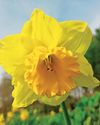
WHY should we be (and generally speaking we are) so keen on visiting or (better still) staying in places that belong or once belonged to rich, famous, brilliant or otherwise distinguished people? It's an interesting question and potentially a slightly awkward one, too, concerning as it does an apparently irresistible urge to cosy up to genius, or, if not genius, then at least some kind of exceptional glamour-or, failing that, plain old money.
Plenty of us will book a hotel because (let's say) 'this was where Napoleon preferred to stay when relaxing in St Helena' or 'Marianne North was living here in the 1890s when she did her marvellous paintings of the coco de mer and other extraordinary flora of the Seychelles'.
I've made reservations on roughly that basis.
On one occasion, to my lasting regret, I dragged my wife to the (admittedly perfectly pleasant) suite of rooms in which Véra and Vladimir Nabokov lived in the Montreux Palace Hotel for 15 years or so following the success of Lolita and where the increasingly irascible old mandarin wrote a handful of late, difficult masterpieces. Pieces of the Nabokovs' own furniture, including a lectern at which he stood to write, were still in place and the layout of the rooms remained unchanged. Why regret, then? I'm not sure. Perhaps because my wife never shared my enthusiasm for his novels.
Although she did understand the convenient-for-hunting-Alpine-butterflies element-which was, after all, the main reason why the Nabokovs moved to Montreux. In a way, her appreciation of that fact justified our visit more convincingly than did my own foolish, bookish fancies.
Literature may be a common gateway drug in this respect, although it's not the only one.
Diese Geschichte stammt aus der October 02,2024-Ausgabe von Country Life UK.
Starten Sie Ihre 7-tägige kostenlose Testversion von Magzter GOLD, um auf Tausende kuratierte Premium-Storys sowie über 8.000 Zeitschriften und Zeitungen zuzugreifen.
Bereits Abonnent ? Anmelden
Diese Geschichte stammt aus der October 02,2024-Ausgabe von Country Life UK.
Starten Sie Ihre 7-tägige kostenlose Testversion von Magzter GOLD, um auf Tausende kuratierte Premium-Storys sowie über 8.000 Zeitschriften und Zeitungen zuzugreifen.
Bereits Abonnent? Anmelden

Shaping the view
Shaping the view The Cart House, near Boddington, Northamptonshire A Modernist garden was exactly the right choice for this newly converted agricultural building

Snakes and snails and puppy-dog tales
Two kindred spirits made it their lives’ work to collect the smallest great poems of the world’s literature’, preserving for children the nursery rhymes, games and fairy tales no longer handed down by their mothers

The ghost of golden daffodils
The flower remains the national emblem of Wales, but how many today are aware of the true Welsh or Tenby daffodil

Kentish variety
Renovations, showjumping and archbishops lend character to two period properties

History triumphs over invention.
A brilliantly acted historical play about two world leaders squaring up to each other outstrips two over-produced versions of Greek mythology, despite their imported Hollywood stars

The lure of Venice
Vedute, the kaleidoscopic views of the maritime republic made popular by Canaletto, so enchanted the British that they not only collected them in large numbers, but soon began painting their own shimmering visions of the city

Power games and the battle for beauty
The Government’s plan to cover the countryside in ugly pylons with seemingly no regard for aesthetics must be vigorously challenged

Mad as a box of frogs
With genes that bear an uncanny resemblance to our own, our amphibious frog friends have aided medical advances and captivated many cultures with their mystical powers, discovers Ian Morton

Follow the yellow brick road
\"IN the 100th year since the death of the man who saved the daffodil I from extinction, the RHS hopes to safeguard the bulb from the perils of a changing climate.

Picasso's mystery lady
A MYSTERIOUS woman has been discovered A under underneath Picasso's Portrait of Mateu Fernández de Soto (1901).